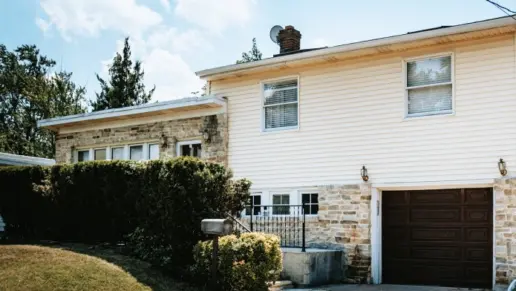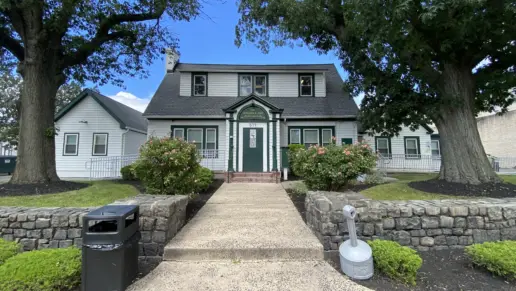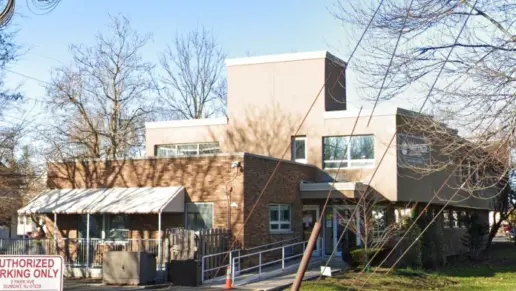I highly DO NOT recommended this program at all if you are trying to substain sobriety & get proper mental health services. This place should not be called Unity, it should be called One Sided, Hood Daycare, or Just Deal With Us. There has been constant Transportation issues ...
About Unity Place Inc
Unity Place in Cherry Hill, New Jersey, is a community based treatment center that offers recovery services for individuals dealing with substance abuse and co-occurring disorders. Along with helping individuals improve their wellness and achieve their recovery goals, they also provide assistance with financial stability, housing, and community integration.
One thing that stands out about this location is its numerous therapeutic and specialty groups. A few of the therapeutic groups offered are the self esteem group, men’s and women’s groups and the symptoms recognition group. Specialty groups available include the trauma group and the creative grief and loss group.
The intensive (IOP) and general outpatient (OP) programs at Unity Place offer many services that can help clients achieve their recovery goals. Patients who need to start by going through withdrawal can receive Suboxone maintenance or Vivitrol therapy. Suboxone is a medication that’s administered daily, and Vivitrol is administered once a month. Both meds achieve the same goal of reducing withdrawal symptoms. Clinicians can help clients decide which medication option is best based on their needs.
During or after withdrawal, patients can start participating in individual and group counseling. Counselors will help patients develop coping skills that help them manage their stress and avoid using substances. Individual and group counseling give individuals a space to be open about the challenges of their recovery and receive support.
There are other features at Unity Place. The facility will conduct urine drug screens to hold clients accountable for their sobriety. Holistic therapeutic approaches that are offered at Unity Place include music and artistic therapy, and yoga nidra.
Clients can make payments through Medicaid or in some cases, they may qualify to receive public funding.
Rehab Score
Other Forms of Payment
Private insurance refers to any kind of healthcare coverage that isn't from the state or federal government. This includes individual and family plans offered by an employer or purchased from the Insurance Marketplace. Every plan will have different requirements and out of pocket costs so be sure to get the full details before you start treatment.
Self-pay involves paying for treatment out of your own pocket. You can use savings or credit, get a personal loan, or receive help from family and friends to fund your treatment. If you don't have insurance or your insurance plan doesn't cover a specific program, self-pay can help ensure you still get the care you need.
Medicaid is a state based program that helps lower-income individuals and families pay for healthcare. Medicaid covers addiction treatment so those enrolled can use their coverage to pay for rehab. When a program accepts Medicaid the client often pays very little or nothing out of their own pocket.
Addiction Treatments
Levels of Care
Treatments
The goal of treatment for alcoholism is abstinence. Those with poor social support, poor motivation, or psychiatric disorders tend to relapse within a few years of treatment. For these people, success is measured by longer periods of abstinence, reduced use of alcohol, better health, and improved social functioning. Recovery and Maintenance are usually based on 12 step programs and AA meetings.
Drug rehab in New Jersey is the process of addressing the complex issues involved with addiction. Challenges are identified and addressed through individual and group counseling. Participants learn how to manage these issues without the use of substances.
Opioid rehabs specialize in supporting those recovering from opioid addiction. They treat those suffering from addiction to illegal opioids like heroin, as well as prescription drugs like oxycodone. These centers typically combine both physical as well as mental and emotional support to help stop addiction. Physical support often includes medical detox and subsequent medical support (including medication), and mental support includes in-depth therapy to address the underlying causes of addiction.
Substance rehabs focus on helping individuals recover from substance abuse, including alcohol and drug addiction (both illegal and prescription drugs). They often include the opportunity to engage in both individual as well as group therapy.
Programs




Clinical Services
Cognitive behavioral therapy (CBT) in New Jersey typically follows a set structure of treatment. The therapist helps clients identify their life challenges and their thoughts surrounding those challenges. The client then learns to identify unhealthy thought patterns and reshape those into healthy patterns of thinking and behavior.
Dialectical means opposing. The premise of dialectical behavior therapy is to learn how two things that seem to be opposite can actually be true. You learn how to accept yourself while also making changes. The focus is on accepting your emotions and changing how you manage them.
Group therapy is any therapeutic work that happens in a group (not one-on-one). There are a number of different group therapy modalities, including support groups, experiential therapy, psycho-education, and more. Group therapy involves treatment as well as processing interaction between group members.
During individual therapy for drug addiction, patients receive a customized and tailored approach to understanding their unique circumstances and providing them with targeted interventions. These include coping skills, relapse prevention plans, and developing resilience, all of which are essential for long term recovery.
Trauma therapy addresses traumatic incidents from a client's past that are likely affecting their present-day experience. Trauma is often one of the primary triggers and potential causes of addiction, and can stem from child sexual abuse, domestic violence, having a parent with a mental illness, losing one or both parents at a young age, teenage or adult sexual assault, or any number of other factors. The purpose of trauma therapy is to allow a patient to process trauma and move through and past it, with the help of trained and compassionate mental health professionals.
Most experts in couples therapy are trained in several modes of treatment. This allows your therapist to draw from various techniques to personalize your therapy for your needs. This may include cognitive, emotional, and behavioral methods, which are all designed to help you strengthen your relationship.
The main types of creative arts therapy in New Jersey are dance, art, drama, and music. Through creative processes and active art making, this treatment provides a safe setting free of judgment for participants to explore and express their challenging thoughts and emotions.
For best results, nicotine replacement therapy (NRT) should be combined with other methods to quit smoking. While NRT addresses physical dependence, other quit program elements are necessary to address emotional and mental dependence. Together, these supports can help you successfully quit tobacco for good.
Contact Information
1 Keystone Avenue
Suite 100
Cherry Hill, NJ 08003


